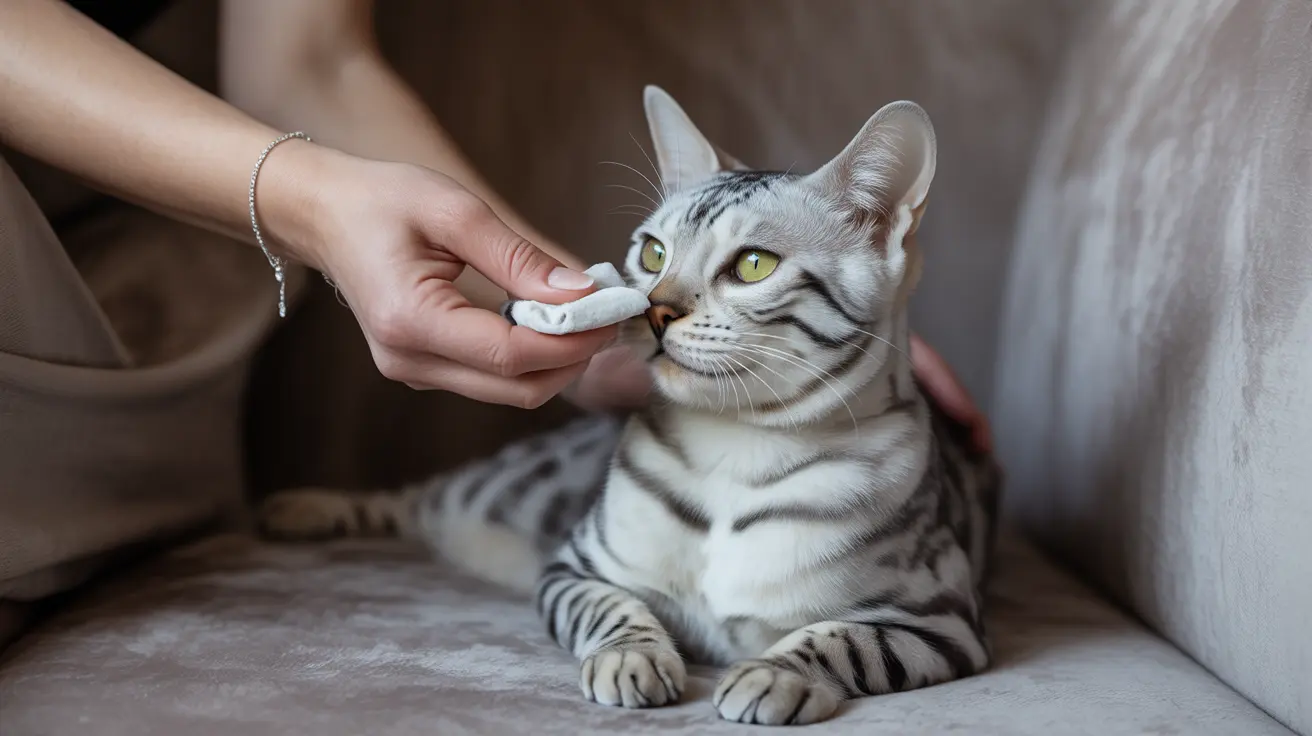When your cat experiences a nose bleed (epistaxis), it can be a concerning and sometimes frightening situation. While relatively uncommon in cats, nose bleeds can signal various underlying health conditions that require attention. Understanding the causes, recognizing emergency situations, and knowing how to respond can help you provide the best care for your feline companion.
In this comprehensive guide, we'll explore everything you need to know about cat nose bleeds, from immediate first aid measures to long-term treatment options and prevention strategies.
Understanding Cat Nose Bleeds
A nose bleed in cats occurs when blood vessels within the nasal passages rupture, causing blood to flow from one or both nostrils. The bleeding can range from a few drops to a more significant flow, and may be accompanied by sneezing or blood-tinged nasal discharge.
While some cases might resolve quickly with basic first aid, others can indicate serious underlying health issues that require immediate veterinary attention.
Common Causes of Feline Nose Bleeds
Trauma and Injury
Physical injuries from accidents, falls, or fights with other animals often lead to nose bleeds. Even seemingly minor trauma can damage the delicate blood vessels in the nasal passages.
Infections and Disease
Upper respiratory infections, bacterial infections, and fungal conditions like cryptococcosis can cause inflammation and bleeding in the nasal passages. These conditions often require specific medical treatment to resolve.
Systemic Health Issues
More serious underlying conditions that can cause nose bleeds include:
- Blood clotting disorders
- High blood pressure
- Kidney or liver disease
- Certain types of cancer
- Tick-borne diseases
Emergency First Aid for Cat Nose Bleeds
When your cat experiences a nose bleed, following these steps can help manage the situation:
- Keep your cat calm and quiet
- Apply a cold compress to the bridge of the nose
- Monitor breathing and overall condition
- Avoid inserting anything into the nostrils
- Contact your veterinarian for guidance
Veterinary Diagnosis and Treatment
Your veterinarian will perform a thorough examination and may recommend several diagnostic tests to determine the underlying cause of the nose bleed, including:
- Blood work and clotting tests
- Nasal swabs and cultures
- X-rays or advanced imaging
- Blood pressure measurement
- Specialized tests for specific conditions
Prevention and Long-term Management
While not all nose bleeds can be prevented, several strategies can help reduce their occurrence:
- Regular veterinary check-ups
- Maintaining a safe indoor environment
- Proper parasite prevention
- Managing underlying health conditions
- Avoiding exposure to environmental irritants
Frequently Asked Questions
Why do cats get nosebleeds, and what are the common causes?
Cats can develop nosebleeds due to various factors including trauma, infections, blood disorders, high blood pressure, and systemic diseases. The most common causes are physical injury and upper respiratory infections.
How do I stop a nosebleed in my cat at home?
Keep your cat calm, apply a cold compress to the bridge of the nose, and avoid inserting anything into the nostrils. If bleeding persists for more than a few minutes, seek immediate veterinary care.
What are the signs that my cat's nosebleed is an emergency?
Seek emergency care if your cat shows signs of difficulty breathing, weakness, pale gums, collapse, or if bleeding is severe or doesn't stop within 10-15 minutes.
Can I prevent my cat from getting nosebleeds, and how?
While not all nosebleeds are preventable, you can reduce risk by keeping your cat indoors, preventing fights with other animals, maintaining regular veterinary care, and addressing any underlying health conditions promptly.
What diagnostic tests might my veterinarian use to determine the cause of my cat's nosebleed?
Veterinarians typically use a combination of blood tests, clotting profiles, imaging studies (X-rays, CT scans), nasal swabs, and physical examination to determine the underlying cause of nosebleeds.
Remember, while nose bleeds in cats are relatively uncommon, they should always be taken seriously. Prompt veterinary attention can help identify and address underlying causes, ensuring the best possible outcome for your feline friend.






